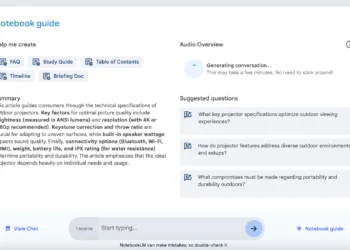Quick Links
Do you ever think about how social media platforms generate revenue? Websites such as Facebook, X (formerly Twitter), and Reddit allow users to create accounts and browse for free, attracting millions of people. But what’s the secret behind their profitability?
1 Advertising
Advertising stands out as the primary revenue source for social media. The design of these platforms often aims to keep users engaged, meaning the longer you scroll, the more ads you encounter.
Ads are ubiquitous, from sponsored posts on Reddit’s homepage to advertisements in Instagram Stories and promoted tweets on X’s feed.
With Facebook boasting around 2.9 billion monthly active users, there’s a vast audience ready to see promotions for various products and services. Although you can adjust your Facebook ad preferences, complete ad avoidance is impossible unless you’re in the EU and subscribe to a specific plan.
Social media sites charge companies to place ads on their platforms. The cost varies based on factors like the reach of the ad and the duration of its promotion.
Navigating the advertising landscape is delicate; too many ads can repel users or drive them to use ad-blockers. However, with the right balance, users are more inclined to engage with relevant ads and potentially make purchases.
2 User Data Licensing
Another significant and somewhat controversial revenue stream for social media platforms comes from gathering and selling user data.
Understanding this process is crucial. Platforms like Facebook, X, and Instagram do not sell identifiable information such as your email or phone number. Instead, they aggregate user data to draw insights that can be marketed.
In recent times, as AI companies require large datasets for model training, data licensing has surged in importance. For instance, Reddit secured over $200 million in data licensing agreements with AI firms, as reported by TechCrunch. This monetization approach transforms user-generated content—which is typically gathered at minimal cost—into a lucrative asset.
3 Premium Subscriptions
While most social media platforms allow free accounts, some provide exclusive features for a fee, hoping that users will opt for premium memberships.
For example, Reddit offers a Premium subscription that enables an ad-free experience, access to exclusive content, and an enhanced profile. Similarly, LinkedIn Premium grants access to learning resources, deeper insights into profile viewers, and messaging abilities to recruiters.
Although most users tend to stick to the free options, those willing to invest in premium memberships contribute a valuable income stream for these platforms.
4 In-App Purchases
In-app purchases provide additional revenue for social media platforms, particularly those that emphasize entertainment and creativity. Applications like TikTok, Instagram, and Snapchat allow users to buy virtual items or special effects to enhance their posts and interact with creators.
For instance, TikTok users can purchase “coins” to gift virtual items to their favorite live streamers, while Instagram users can buy badges as a form of support during live sessions. This model fosters a more engaging and interactive environment.
5 Virtual Gifting and Tipping
Virtual gifting and tipping give creators a way to earn money directly from fans. As users buy tokens or coins to send digital gifts, creators can transform these gifts into cash.
Platforms like TikTok and YouTube simplify tipping with features like virtual gifts during live streams or “Super Chats” that allow fans to pay for their messages to be highlighted. Social media platforms typically take a cut from each transaction—usually around 20-30%—while creators benefit from a steady income stream sourced directly from their supporters.
6 E-Commerce Integrations
E-commerce integrations represent yet another revenue source for social media platforms. TikTok, Instagram, and Pinterest provide seamless shopping experiences, allowing users to browse and purchase products without leaving the app. This approach, known as “social shopping,” lets brands tag products directly in posts, stories, and videos, enabling users to view details and make purchases effortlessly.
These integrations are especially beneficial for brands aiming to connect with engaged audiences in a natural, low-friction manner. Social media platforms often charge brands for these shoppable posts or take a small percentage of each transaction.
7 API Access Fees
API access, which allows apps and tools to interact with social media platforms, can also generate revenue. Scheduling tools, social media management apps, and editing software that connect to social networks rely on having this permission.
However, some platforms charge a fee for API access. A notable instance was when Reddit increased its API charges in 2023, leading to the discontinuation of several third-party clients. By implementing API access fees, platforms can monetize their infrastructure while managing how their data and capabilities are utilized by external services.
8 Venture Capital
Venture capital, a vital form of private financing, plays a significant role in the early stages of many social media companies. It occurs when wealthy individuals or investment firms invest in start-ups they believe have potential.
Investors provide capital (and sometimes their expertise) in exchange for equity in the business. A larger equity share typically grants them more influence over company decisions, with hopes of making a profitable return when the business becomes substantial and successful.
There’s a saying that “if something is free, you might be the product.” This is particularly relevant in the social media sphere. Although some monetization methods may raise concerns, it’s essential to recognize that these platforms must generate revenue to sustain their operations.











